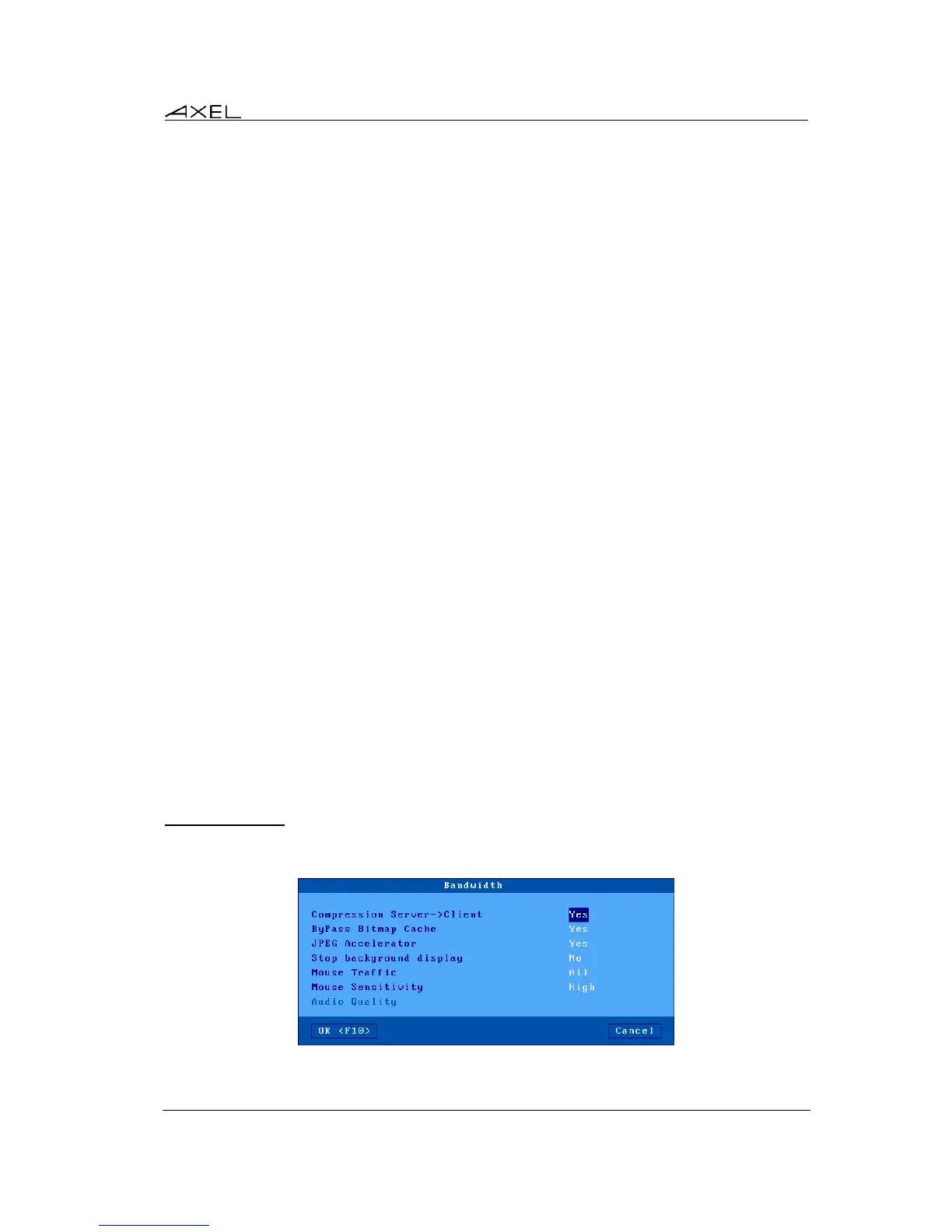Installing under Windows
AX3000 Models 80 and 85 - User's Manual 105
- USB Drive: set (or not) the mass storage device redirection. The 'Access Permission' value
is set globally. See Appendix A.7.2.
- Smartcards: set (or not) the smartcard redirection.
- Auto-Connection: when set to yes, the option allows the ICA session to be automatically
established when a smartcard is inserted in the reader.
- Redirected COM/LPT Port: COM port(s) are selected through a list. This list is composed
by the following items:
- All
- None
- xxx (port): these are the COM port name(s). This allows the selection of only one
COM port to be redirected.
- USB Ports (XenDesktop): set (or not) the USB Port Redirection for XenDeskop (not
supported by XenApp). For more information about 'Eligible Devices' see Chapter 3.2.5.
- Include Audio Processing (Lan): not applicable for Citrix.
d) Remapping a COM/LPT port
Thin Client COM ports must be remapped to server COM ports. The remapping commands are
"change client" or "net use". These commands may be issued from a command prompt from the
thin client’s Citrix session.
Example: the Windows COM4 port is remapped to the thin client COM1 port
net use com4: \\client\com1:
or
change client com4: com1:
Note: this remapped resource is only for the thin client. In this example COM4 is not seen by other
users.
: How to set-up a user account to automatically launch a "net use" command.
- Create a shareable directory called Netlogon.
- In this directory create a file called "myscript.bat".
- Enter the 'net use' command line as required in this file.
- Edit the user account properties by selecting the 'profile' tab and set the "Logon script" to
read the "myscript.bat" file.
For more details see Windows help on Netlogon.
5.2.9 - Bandwidth
The following box is displayed:
